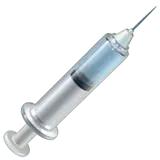Shot hole disease
Coryneum blight


CLASSIFICATION
Fungi, Ascomycetes, Pezizomycotina, Dothideomycetes
ABOUT
Shot hole disease is a fungal disease caused by the pathogen Wilsonomyces carpophilus and infects Prunus spp. (such as almonds, cherries, plums, and apricot trees). The diseased tree develops holes in leaves, rough areas on fruit, and concentric lesions on branches.
How to treat?
 Biological
BiologicalIf possible remove and destroy the infected and dead parts of the plant. Prune out and dispose of diseased plant tissue as soon as it appears.
Rake the infected leaves around and beneath the tree.
 Chemical
ChemicalIf necessary, apply a copper-based fungicide.
If necessary, apply fungicide containing chlorothalonil (GHS05: Corrosive, GHS06: Toxic, GHS07: Harmful, GHS08: Health hazard, GHS09: Environmental hazard).
 Disease prevention
Disease preventionAvoid prolonged wetting of the leaves, which can be caused e.g. by overhead irrigation.
Prune the plant. Pruning will increase airflow.
Disinfect tools, infected flower pots, and hands to avoid disease transmission.
Apply dormant oil (controls pests and diseases during the off-season).